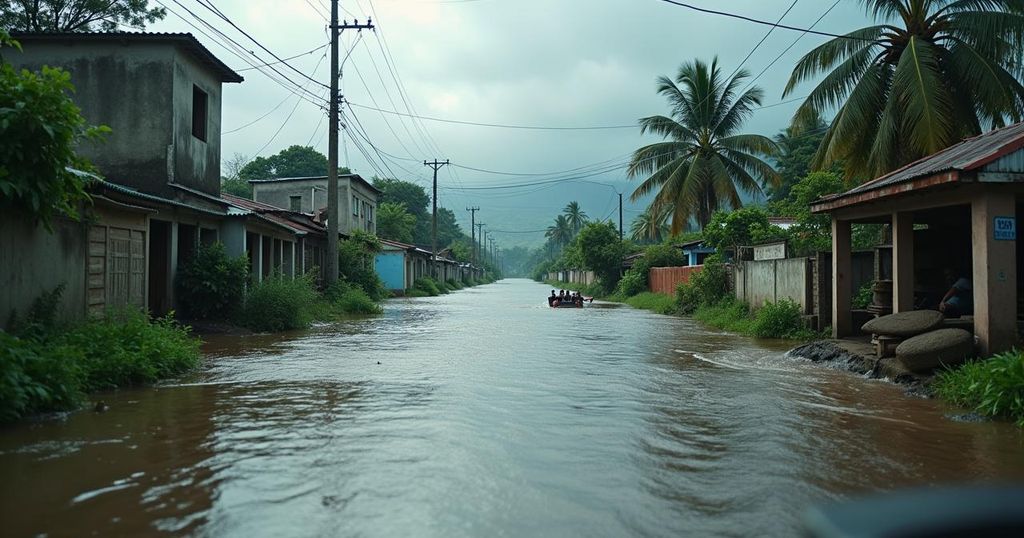Catastrophic Flooding Overwhelms West and Central Africa Amid Torrential Rains
Torrential rains in West and Central Africa have led to significant flooding, particularly in northeastern Nigeria, where over 400,000 people are affected. The flooding has claimed more than 1,000 lives and displaced countless others across several countries, including Chad, Niger, and Mali. Ongoing rescue operations face immense challenges as locals recount harrowing experiences. The climate crisis underscores urgent calls for international aid and adaptation strategies.
Torrential rains have unleashed catastrophic flooding in West and Central Africa, particularly affecting northeastern Nigeria, where the United Nations reports over 400,000 individuals impacted. The flooding has resulted in widespread devastation, with aerial images revealing submerged neighborhoods and overwhelming displacement of residents. In Maiduguri, the capital of Borno state, catastrophic scenes unfolded following a dam collapse, exacerbating the ongoing humanitarian crisis in a region already beset by insecurity due to the Boko Haram insurgency. The floods have claimed more than 1,000 lives this year, with significant fatalities recorded in Nigeria, Niger, Chad, and Mali. With over four million individuals affected in West Africa alone—a sharp rise from previous years—the crisis poses immense challenges for government and humanitarian efforts. The World Meteorological Organization highlights that sub-Saharan Africa is particularly vulnerable to extreme weather, urging for vast financial resources to adapt to climate impacts. Locally, rescue operations are ongoing amid shocking accounts of devastation. Civilians reported scenes of chaos and loss, with many residents, including an overwhelmed mother who lost her newborn amidst the flooding, expressing despair and hopelessness. Infrastructure destruction has further compounded the crisis, as entire communities have been rendered temporary riverbeds. As the situation evolves, authorities and international agencies are responding, but local leaders have articulated the dire need for increased support. A call for international aid has been made as historical weather patterns shift dramatically, leaving communities vulnerable and in urgent need of humanitarian relief.
The flooding currently engulfing parts of West and Central Africa is unprecedented, driven by heavy torrential rains that have devastated the region. The humanitarian situation is exacerbated by existing crises linked to conflict and poverty, particularly in places like Borno state, Nigeria. Over the last decade, this area has been under siege from violent extremist groups, further complicating recovery and relief efforts. The flooding has underscored the severe risks posed by climate change and the increasing frequency of extreme weather events, impacting infrastructure and displacing millions, calling attention to the urgent need for adaptation strategies in vulnerable regions.
In summary, West and Central Africa are grappling with severe flooding that has led to an unprecedented human toll and exacerbated existing humanitarian crises. Every day, the repercussions of such disasters demand immediate international attention and support, especially as the region faces ongoing threats from climate change and insecurity. Local governments and international organizations must collaborate to deliver essential aid and build resilience against future climate-related disasters.
Original Source: apnews.com




Post Comment